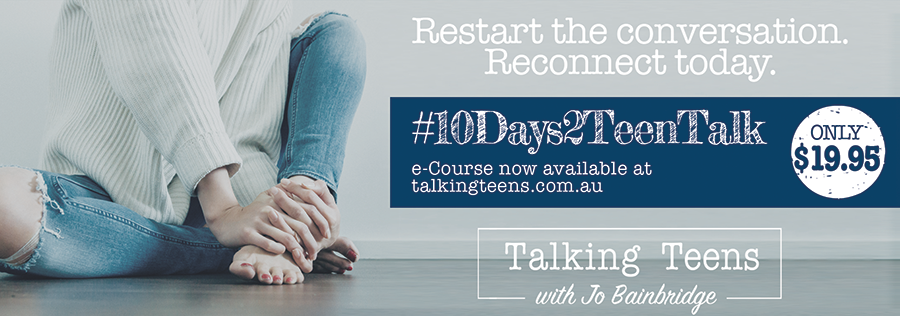![p_2496 [Converted]](https://www.averymagazine.com.au/wp-content/uploads/2015/10/feminism1-1024x590.jpg) There was once a time when the greatest threat to feminism came from the entrenched patriarchal society in which women lived. Today, however, it seems the feminist movement is most at risk from a much more unlikely source: women. In particular a young, vocal and growing movement, insistent on disowning feminism as unnecessary and antiquated. Sarah Hausler investigates.
There was once a time when the greatest threat to feminism came from the entrenched patriarchal society in which women lived. Today, however, it seems the feminist movement is most at risk from a much more unlikely source: women. In particular a young, vocal and growing movement, insistent on disowning feminism as unnecessary and antiquated. Sarah Hausler investigates.
In the past year the #womenagainstfeminism hashtag has exploded. This is thanks, in most part, to the Women Against Feminism Tumblr page, where young women post images of themselves holding placards bearing statements such as “I don’t need feminism because I can own up to the mistakes I’ve made in my life and do not have to blame them on the completely fictional ‘partiarchy’”, “I don’t need modern feminism because I like men”, “I don’t need feminism because I believe in equal rights, not gender shaming,” and “I don’t need feminism because I like men looking at me when I look good.” *
Concurrent with this social media movement are the anti-feminist protestations of a swag of young female celebrities, such as Divergent actress Shailene Woodley, and singers Meghan Trainor and Lana Del Rey, the latter denouncing feminism in a Rolling Stone interview last year, describing it as “just not an interesting concept.” Or Kelly Clarkson, who told Time Magazine in 2013, “I love that I’m being taken care of, and I have a man that’s an actual leader.”
So how does this impact on feminism? Is this current anti-feminist sentiment a sign the movement has had its day and is no longer needed in our society?
Absolutely not, says Dr Gemma Munro, CEO of training and development organisation Inkling Women, and current finalist in the 2015 Telstra Business Women Awards, who says women still have a long way to go to attain equal rights, and feminism continues to be the way forward.
“Anti-feminism supposes that feminism is no longer needed; that women and men have achieved equality, and women are no longer served by a movement that suggests they require special treatment,” Ms Munro says.
“To this sentiment, I blow a big fat raspberry.
“Currently, women are paid only eight-one cents to the male dollar, and most boards and executive teams are mostly or purely male. Given this, the idea that we no longer need feminism is ridiculous.”
I will gratefully kiss the need for feminism goodbye when the most important decisions on the planet are made by an equal proportion of men and women. DR Gemma Munro
Ms Munro is adamant the world will be a better place when the feminist movement meets its ideals of gender equality and equal representation.
“I will gratefully kiss the need for feminism goodbye when the most important decisions on the planet are made by an equal proportion of men and women,” she says.
“When girls and women have equal access to quality education. When women no longer fear for their safety. We are nowhere near this being a reality. Until we are, feminism has a powerful role to play.”
Given the current levels of female success in secondary and tertiary education, Ms Munro says it is unsurprising the ‘women against feminism’ movement is being led by this demographic.
“Most young women I meet who describe themselves as ‘anti-feminist’ have not yet seen evidence of gender equity barriers,” she says.
“At university, for instance, women outperform men. What happens when women join the workforce, though, is extraordinary. These higher-performing female graduates are paid, on average, 10 percent less than male graduates.
“I work with women who are aspiring to move to leadership level in their workplaces. It is usually at this stage that women become aware of the glass ceiling.”
Adelaide based feminist writer Lou Heinrich has also tracked the growing anti-feminist argument and suggests there are two major faults with the movement.
“First, it ignores the history of suffragettes and activists, which has laid the groundwork for women’s freedom they enjoy daily, even issues such as education and economic freedom are still a relatively new concept for women,” Ms Heinrich says.
“Secondly, it assumes there is an almighty mothership of feminism, that feminists are a single group with unified goals.”
It is this concept – of a single unifying strand of feminism, which Ms Heinrich believes may also be the culprit for feminism’s long held undesirable reputation.
“Because people have had negative experiences with individual feminists, they misunderstand the movement based on this,” says Heinrich.
“Admittedly, this conflict derives from true experiences – but hey, we’re not a religion with hierarchical systems of power. It’s a wide school of thought with no public representative, so the message can get confused.”
These arguments aside, Ms Heinrich believes many in the ‘women against feminism’ corner actually value the same goals and freedoms as those who label themselves feminists.
“To me it hinges on misunderstanding,” she says.
“My favourite anti-feminist argument is, ‘I do not need contemporary western feminism as I do not believe women must all think and act the same way; it is for the individual to choose’.
I don’t believe that women should have power over men. In that sense you could also call me an egalitarian, but that would ignore the centuries of female oppression. Lou Heinrich
“What feminism has worked for so far is giving women the ability to choose – to have an education, to be able to spend their own money, to decide what career they want. And we’re still working for that – too often we are confined by society’s expectations of who we should be or how we should act.”
Like Dr Munro, Heinrich says “there is no doubt” the feminist movement still has much to achieve in order to bring about a truly equal society, both here in Australia and around the world. The anti-feminists’ preferred labels of humanism or egalitarianism are not enough, says Ms Heinrich, adding the word ‘feminism’ isn’t something to be feared or disowned.
“A regular comment is ‘I don’t need feminism because I believe in equal rights’ – well, I do too,” Ms Heinrich says.
“I don’t believe that women should have power over men. In that sense you could also call me an egalitarian, but that would ignore the centuries of female oppression.”
* (source: womenagainstfeminism.tumblr.com)









